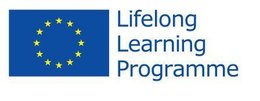Fruitful 4th All Partner Meeting in Lausanne
Universities to the north, east and west of Europe had been our destinations for the first three IntlUni All Partner Meetings, and – after Aarhus, Warsaw and Essex – it was now the University of Lausanne that was to play host to the 42 partner representatives from 36 partner institutions based in 26 countries. Positioned very much at the heart of Europe, though just outside the borders of the European Union, this exquisite university town in the French-speaking part of Switzerland was to prove an ideal location as we progressed beyond the halfway stage of the project.
2014.06.23 |

University of Lausanne hosting 4th IntlUni partner meeting

Group picture of all the IntlUni partner representatives

Group picture of the management committee and the work packages leaders WP4 and WP7

UNIL Campus - Amphimax, where the meeting took place

IntlUni Coordinator Karen M. Lauridsen welcomes all!

IntlUni meeting in session

Beautiful location for the 4th IntlUni partner meeting
The expansive, leafy campus just above the old town, with spectacular views down to Lac Léman and the Jura mountains beyond, was the focal point for our daytime meetings. Its natural park landscaping, a felicitous mix of tradition and innovation containing an 18th-century chateau alongside lavish, modern research and teaching facilities, made us not a little envious of our hosts. All agreed the combined effect was nothing less than inspirational as we strolled back in the lunch breaks to our auditorium, gazing across lawns dotted with shady trees and a discrete array of (post-) modern kinetic and other experimental sculptures.
Our hosts and guides Sylvie Kohli and Romaine Morard, informed us that one tree in particular has pride of place on the campus: the over two-century-old Napoleonic oak planted by the former landowners to mark the passage of Napoleon’s troops on May 12th 1800 during his conquest of Italy. It was also thanks to Napoleon that the canton of Vaud, to which Lausanne belongs, was declared a sovereign entity with a republican constitution in 1803. Linking tradition and innovation, the university has, we were informed, recently launched a genomic sequencing project aimed at unlocking the DNA of this particular species of oak tree. Were we in IntlUni not too, some of us thought, wrestling with notions of continuity and change in our quest to decode and sequence successful internationalization practice?
No less impressive was the accommodation: quartered in the aptly named Hôtel Aulac, some of us were lucky enough to have balcony views overlooking the harbour, the Olympic Clock announcing 800 odd days to go until the next Olympics (Lausanne is home to the IOC), the snow-capped mountains flanking a panoramic lakeside view. We also witnessed a dramatic alpine thunderstorm at night and were woken by the early morning hooting of ferries carrying the many tourists and French commuters to and fro between Lausanne and Evian-les-Bains. For those energetic enough to go for a brisk pre-breakfast walk or even a bracing run beside the lake, the breathtaking dawn views were more than worth the effort.
Lausanne is clearly a young, vibrant and dynamic university city in the heart of Europe. Much of what we experienced of it was by way of public transport and a metro system that apparently makes Lausanne the smallest city in the world to have a rapid transit system. Each morning we boarded a packed metro leading up to ‘Flon’: a stop characterized, much to everyone’s amusement, by its rather quirky if not disconcerting ‘flushing water’ sound in lieu of a standard station announcement. From here we headed on to the university campus for the committee meetings and all-partner workshop sessions, returning on the initial evenings for dinner in two stylish restaurants in the old university quarter near the library and cathedral.
Our informal evening discussions left us with a clear sense that much progress had been made both prior and during the Lausanne meetings. For our Project Coordinator, Karen M. Lauridsen, it was important that the core project goals of identifying principles underpinning successful internationalization practice at universities remained both “timely” and “on time” as we move to the recommendation and impact phase, with its eventual aim of facilitating change where necessary at the policy level. For WP4 Leaders Stacey Cozart, Kevin Haines and Thomas Vogel, who had done so much to prepare the ground for the validation process in Lausanne, it was clear that IntlUni had at its core an “efficient, like-minded team” (Thomas) with a “fundamental shared understanding” (Kevin) that “internationalizing the classroom” involves “more than just switching to teaching in English” (Stacey). At heart, with regard to the notion of the multicultural and multilingual learning space (M&MLS), it was “actually a quality issue” (Stacey). Further, what was emerging was “a real network” (Kevin), both with view to those partner institutions directly participating and beyond with regard to synergies with cognate projects across Europe.
As the 4th All Partner meeting drew to a close, we were treated as is customary on the third and final night to a lavish dinner at one of Lausanne’s renowned lakeside venues. It was here that our discussions focused on preparations for the next meeting, to be held at the University of Minho in Braga, Portugal and organized by Joanne Paisana and Maria Alfredo Moreira. With a view to gleaning input at the policy level and maximizing the impact our eventual recommendations might have, the hope is that we will be accompanied in our journey south and west to Braga in November by high-level representatives and decision-makers from within our respective institutions.

